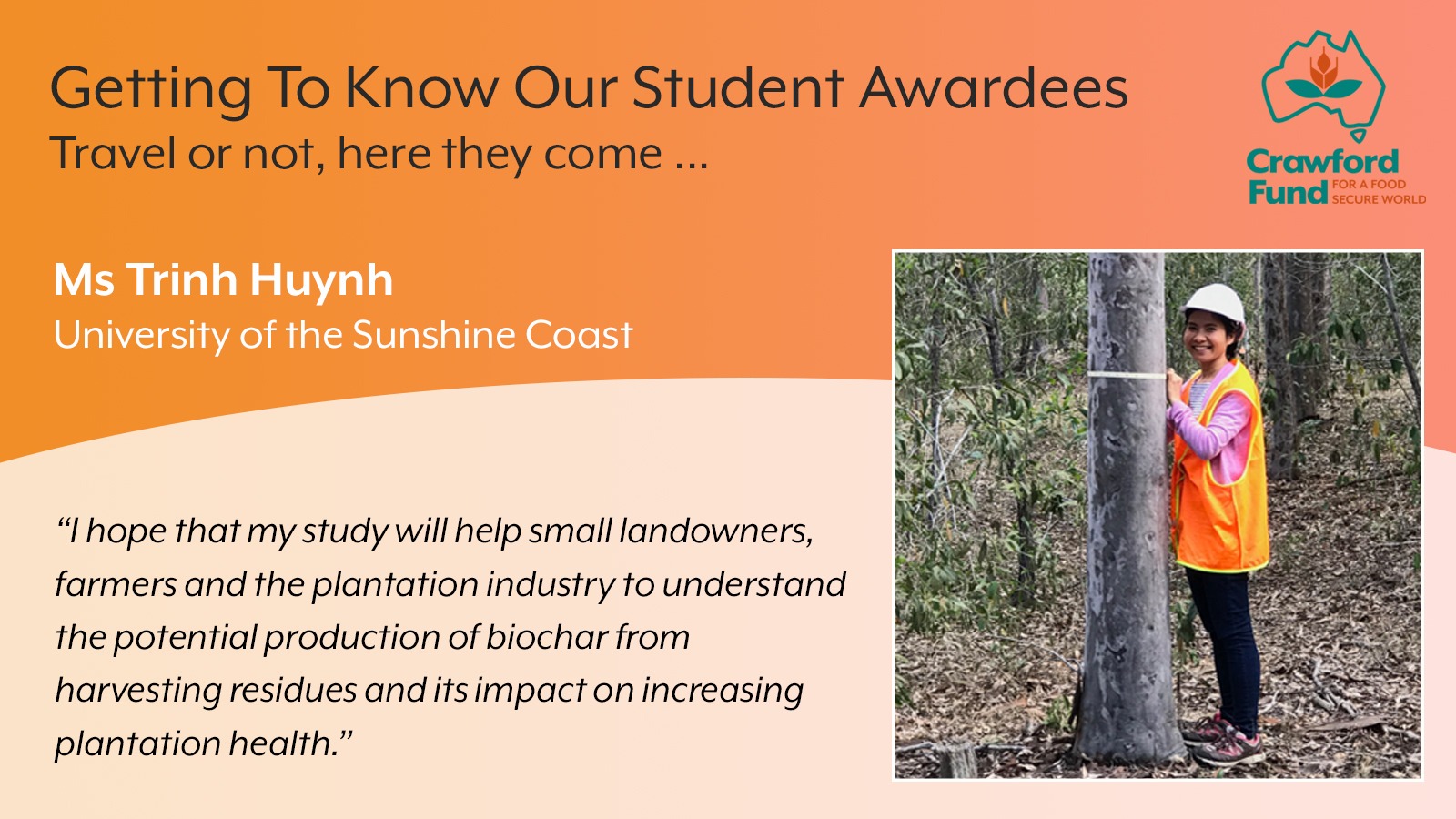

Getting to know our Student Awardees – Trinh Huynh, University of the Sunshine Coast
October 28, 2021

In July, we announced our 2021 Student Awardees – those talented students from around Australia selected by our State and Territory Committees to experience international agricultural research and development firsthand, in a COVID safe manner of course!
The 2021 recipients will carry out research across a diverse range of topics, focused in Australia, Laos, Uruguay, Fiji, Samoa, Malaysia, Vietnam, Brazil, Nepal and Myanmar. We would like to thank our partner organisations for making these opportunities available, including the Australian Centre for International Agricultural Research, Grains Research and Development Corporation, International Maize and Wheat Improvement Center (CIMMYT), and the Sunrice Rice Research Facility.
We are excited to now bring you more details of each of our Awardees, their projects, and what they hope to achieve with the opportunity provided by our support. We are pleased to also provide input from our awardees’ supervisors on what they see as the benefit of the opportunity to add an international component to their student’s studies and research.
Presenting:
Trinh Huynh
PhD Student
University of the Sunshine Coast
Research – Building an effective forest biosecurity network in South East Asia
Supervisor quote
The Crawford Fund award will allow Trinh and other award recipients to expand their skill set while assisting developing countries to better address critical issues like climate change and food security.
Dr David Lee, Associate Professor in Plant Genetics, University of the Sunshine Coast
How did you become interested in international ag for development and focusing your research in developing countries?
I grew up in a developing country, so I understand the challenges, risks and worries that farmers are facing in agriculture and I want to make positive changes by applying my international agricultural knowledge to help them solve their issues
Are there benefits to Australia from the proposed award work?
I expect that results from my study can be useful to the Queensland government and forest industry to understand the potential use of biomass residues and how they can be applied to enhance productivity and improve resilience to pest and disease outbreaks.
Another benefit is developing strong relationships between the Forest Science Institute of the Central Highlands and South of Central Vietnam, the University of the Sunshine Coast and ACIAR. Potentially there may be opportunities in the future for other students from the host institute overseas to develop future projects or for students to study in Australia.
Please tell us about what you hope to do as part of your award and the impact it may achieve.
I hope that my study will help small landowners, farmers and the plantation industry to understand the potential production of biochar from harvesting residues and its impact on increasing plantation health.
Do you have a strategy to carry out the award research, even if travel is not possible, that you’d like to share with other awardees?
I built two scenarios into my proposal. The first scenario is if I can travel, everything will go ahead as planned. The second scenario is if travel is not possible, researchers and my colleagues (participants), who are working at Forest Science Institute of the Central Highlands and South of Central Vietnam will be able to assist me with collecting the data. Fieldwork participants are experienced in forest inventory and I will have a meeting to provide all participants with fieldwork risks, tasks and the controls required.
What do you want to be working on in the future?
I would like to work in forestry providing benefits to farmers in Australia and developing countries.
Do you have advice for others interested in getting involved in international ag development?
I recommend doing a bit of research identifying the people at the heart of our food systems and discover their voices, worries, hopes and solutions for a brighter future.




 0
0